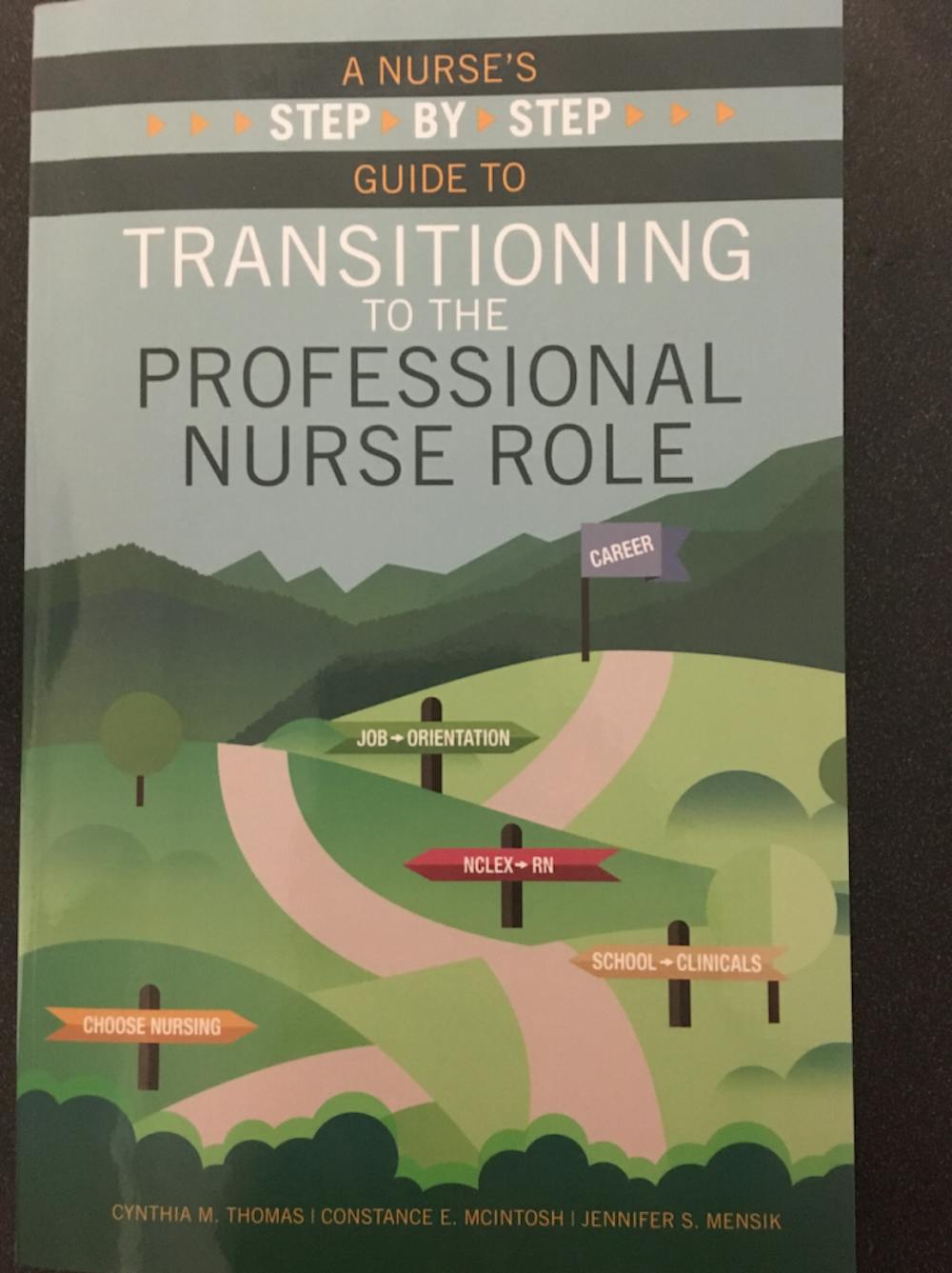Two Ball State professors published a book to help their students transition into a professional nursing role.
Cynthia Thomas, an associate professor of nursing, and Constance McIntosh, an assistant professor of nursing, wrote “A Nurse’s Step-By-Step Guide to Transitioning to the Professional Nurse Role."
Thomas was approached by Sigma Theta Tau International Honor Society of Nursing to write the book. Initially, she initially declined but then decided to ask McIntosh if she would be her co-author. McIntosh also originally said no and questioned if she was the right person to write the book, even though both professors' lines of research is on the transition to practice.
“One of the reasons we wrote the book was because there are no books like this that puts it all together for a student that’s transitioning out to the professional nursing role," Thomas said. "Otherwise, they have to go to all different sources. The book is to solidify all the information they’re learning in these final courses. … It’s not just for the initial transition; it’s making transitions throughout their professional career.”
The two had talked for several years about the skill-sets and knowledge transitioning nurses need and have written how-to articles and manuscripts — but never a book.
Transitioning nurses include both newly licensed nurses and nurses who used to be licensed but left the field. Thomas teaches a management leadership course, which is set up to be a transition course for nursing students. The book is a required textbook for the class.
Someone in the class questioned why a book that was written by faculty members was required, and Thomas said there is no other reason to write a book if you’re not going to use it for your own students. She said the motivation is not financial gain, but to help students.
McIntosh said Ball State has a track record of producing good nurses who can hit the ground running after graduation, and if they don’t know the answer to something, they know where to get it.
Other universities and hospitals have contacted Sigma Theta Tau International about purchasing the book, and anyone can buy the book from websites like Amazon. The two did a book signing in November, which McIntosh called a humbling experience.
“I’m grateful because we share the same thought process that if you send out good vibes and all of that, good things come back to you," McIntosh said. "And from this experience, writing this book, it has generated all sorts of questions and opportunities to write manuscripts and to write opinion pieces. … And from that, we just got accepted for another book."
McIntosh, Thomas and David McIntosh, a Ball State special education professor, will write the second book. The book will be about the tenure process in higher education and how nurses can maneuver through that successfully. Tenure is a life-long position with an educational institution that is granted after a seven-year interview process for faculty who are on the tenure track.
"It’s very challenging to go through the tenure process," Thomas said. "It’s doable, and that’s one of the reasons we’re writing this second book — to encourage nurses especially to become nurse educators, faculty at schools of nursing around the country and to go on a tenure track."
Thomas said she hopes readers gain knowledge of what it’s like to be a registered nurse, the role of mentors and career planning. Both women said they wish they would have had the book when they were younger.
“We hope that [readers] get lots of good tips and information as they move throughout their career,” Constance said. “A new nurse doesn’t necessarily know how to work the system in health care practice.”
Libby Fox, a senior nursing major in Thomas' management leadership course, said the book discussed how every nurse is a leader and can lead in different ways.
“I definitely think it’s beneficial. … I feel like it goes through everything that you’re gonna need to know, right from the start, all the way to if you go back for another degree,” Fox said. "I would say it would be to your detriment if you didn’t read it.”
Graham Zgunda, a senior nursing major also in the management leadership course, plans to refer to the book after he graduates.
“There’s only so much they can do to prepare us to be a nurse kinda straight out of college, so I think, especially in this first year or two [where] they say … you don’t really feel confident as a nurse until at least like two years into your practice, ... it’ll kinda be helpful to go back through and refresh different information for myself,” he said.





